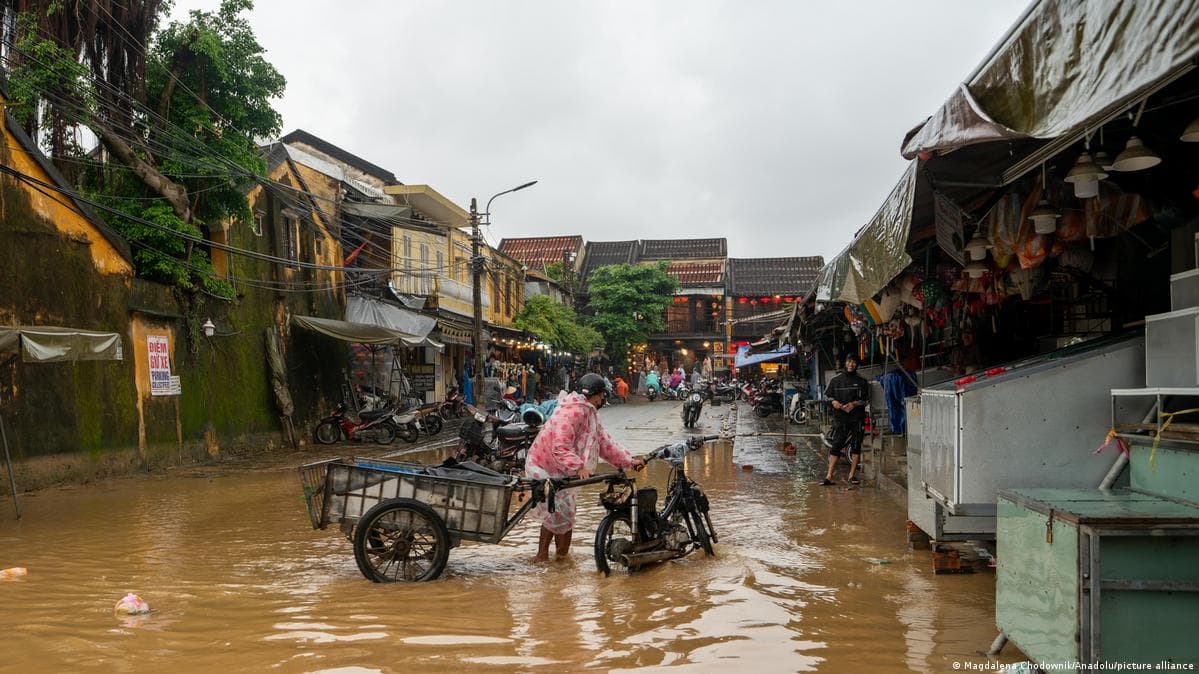We're loading the full news article for you. This includes the article content, images, author information, and related articles.
Devastating floods in Vietnam’s key agricultural region could disrupt the global coffee market, with potential price implications for Kenyan consumers and producers as the world's top Robusta supplier faces harvest turmoil.

At least 41 people have been killed and nine others remain missing after relentless rains triggered severe flooding and landslides in central Vietnam, according to the country's official disaster management agency. The deluge, which began over the weekend, has submerged more than 52,000 homes and devastated vast swathes of agricultural land, prompting a large-scale emergency response.
State media reports from Thursday, 20th November 2025, confirmed the death toll and the widespread destruction. Vietnam's Department of Dyke Management and Natural Disaster Prevention stated that the provinces of Dak Lak and Khanh Hoa were the hardest hit, with 16 and 14 fatalities respectively. Rainfall has exceeded 1,500 mm (nearly 5 feet) in several areas since the weekend, a figure that surpasses historical records and has overwhelmed local infrastructure. The government has deployed military and naval forces to evacuate stranded residents, many of whom were forced to take refuge on the rooftops of their inundated houses. In Lam Dong province, a state of emergency was declared after landslides severed major roads and a suspension bridge was filmed being swept away by raging floodwaters.
The floods have inundated Vietnam's Central Highlands, the country's primary coffee-producing region and the world's largest source of Robusta beans, a key ingredient in instant coffee and espresso blends. The timing is critical, as the deluge has struck in the middle of the coffee harvesting season, hampering efforts to pick and dry the beans. Traders based in Dak Lak province reported that low-lying coffee farms are deep in floodwater, slowing down the harvest significantly.
This disruption threatens to tighten global supply, potentially leading to price volatility on the international market. While Kenya's direct coffee exports to Vietnam are minimal—amounting to approximately US$79,300 in 2023 according to the UN COMTRADE database—the East African nation's coffee sector is intrinsically linked to global price fluctuations. Any significant supply shock from a major producer like Vietnam could drive up global benchmark prices, impacting what Kenyan farmers earn for their crop and the price local consumers pay.
This disaster is the latest in a series of extreme weather events to batter Vietnam, a country experts identify as one of the most vulnerable to climate change. According to government statistics, natural disasters between January and October this year have already caused over US$2 billion in damage. Scientists have established a clear pattern of human-driven climate change making extreme weather more frequent and destructive in the region. Studies indicate that the intensity of tropical cyclones affecting Vietnam has increased in recent decades, linked to rising sea surface temperatures. The Vietnamese government has acknowledged these increasing risks, with climate change adaptation forming a key part of its national strategy.
The Vietnamese government has mounted a significant emergency response. Prime Minister Pham Minh Chinh, speaking from Algeria on Thursday, 20th November 2025, ordered military and police forces to reach isolated areas overnight to deliver food and rescue residents. The government has approved emergency aid packages for the most affected provinces, including Khanh Hoa and Lam Dong. Military helicopters are being used to deliver life vests, rescue equipment, and essential supplies to communities cut off by the floodwaters.
International support has also begun to arrive. As of 19th November 2025, international partners had pledged over US$13 million to assist with recovery from recent storms and floods, according to Vietnam's Ministry of Agriculture and Environment. The European Union, the United States, Australia, and the Czech Republic are among those who have contributed aid. The funds are being used for cash assistance, hygiene kits, and materials to repair homes, ensuring that aid reaches the families most in need.
Keep the conversation in one place—threads here stay linked to the story and in the forums.
Sign in to start a discussion
Start a conversation about this story and keep it linked here.
Other hot threads
E-sports and Gaming Community in Kenya
Active 9 months ago
The Role of Technology in Modern Agriculture (AgriTech)
Active 9 months ago
Popular Recreational Activities Across Counties
Active 9 months ago
Investing in Youth Sports Development Programs
Active 9 months ago